Mildred Wertheimer
Mildred Wertheimer was a scholar of international relations and political science in the early twentieth century. In the 1920s, few women worked in the field of foreign policy, and even fewer achieved her level of scholarship and renown.
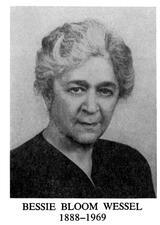
Bessie Bloom Wessel
Bessie Bloom Wessel was unique in her contributions to life in New England, both as an active citizen and as a scholar. She worked with immigrants, served on several committees, and produced significant ethnic studies.
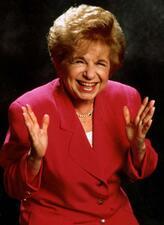
Ruth Westheimer
Ruth Westheimer, who lost her entire family in the Holocaust, served in the Haganah, and received her Ed.D. from Columbia University, was an unlikely candidate for the role of host of a cheerful talk show about sex. However, her celebration of human sexuality, derived from Orthodox Judaism, made her an influential and highly successful proponent of joyful, responsible sex from the 1980s into the third decade of the twenty-first century.
Martha A. Wetstein
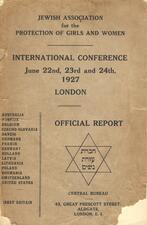
Jewish Association for the Protection of Girls and Women.
International Conference, June 22nd, 23rd, and 24th, 1927. London.
Official Report. Central Bureau. 45, Great Prescott Street, Aldgate, London, E.1.
Australia, Austria, Belgium, Czecho-Slovakia, Danzig, Denmark, France, Germany, Holland, Latvia, Lithuania, Poland, Roumania, Switzerland, United States, Great Britain.
White Slavery
“White slavery traffic” was an expansion of the prostitution that spread throughout the world in the first years of the twentieth century, following the massive emigration to the New World and resulting from the growing poverty and misery of European women in the age of industrialization. Jewish women were particularly vulnerable in a hostile environment, and Jewish women's organizations played an active role in the international struggle against this plague.
Ruth Whitman
Poet Ruth Whitman was known for her acclaimed translations of Yiddish poetry, as well as for her own autobiographical work. She wrote a series of narrative poems in the voices of women from the past, including Lizzie Borden, Tamsen Donner, Hanna Szenes, and Hatshepsut, the only woman pharaoh in ancient Egypt. In these, she explored problems with sexual identity, love, work, and motherhood.
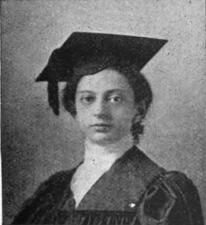
Rosalie Loew Whitney
Widow of Zarephath: Bible
Narratives about the ninth-century B.C.E. prophet Elijah are found in 1 Kings 17–19 and 21 and in 2 Kings 1–2. Like his successor, Elisha, he is depicted as having many of the attributes of Israel’s later prophetic figures. One of these characteristics—concern for the oppressed and socially marginalized—is revealed in the story of the widow of Zarephath.
Widow of Zarephath: Midrash and Aggadah
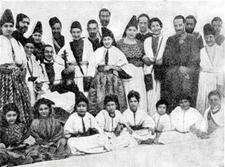
Widows in the North African Jewish Communities of Late Ottoman Palestine
By the mid-1870s, approximately a quarter of the Jewish population of Palestine, excluding Jerusalem, was North African, and the overwhelming majority of adult Jews were women. This discrepancy was due to a large number of widows, who experienced economic and physical hardship in their new home but also a new sense of freedom.
Bertha Wiernik
Writer and translator Bertha Wiernik is remembered by her many adaptations of Yiddish literature and dramatic works. Working closely with charitable societies throughout her career, Wiernik helped spread Jewish literature throughout New York City in the early 20th century.
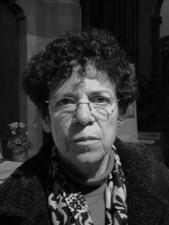
Annette Wieviorka
Annette Wieviorka (b. 1948) is a major French historian of the Holocaust. Her work highlights the specificity of the Shoah in the context of Nazi and Vichy crime generally.
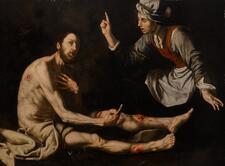
Wife of Job: Apocrypha
While the Wife of Job has a limited role in the biblical narrative, the apocryphal Divrei Lyov transforms her into a central character of the plot. Unique to the apocryphal account, Job is cited as having two wives, Utzit and Dinah, whereas the midrashic account has Job marrying only one woman.

Wife of Job: Bible
In characterizing her husband’s unconditional devotion to God as an act of cowardice, Job’s nameless wife is the one who opens the possibility of speaking against God. Much like Eve, Job’s wife prompts her husband to doubt God’s use of divine powers and, in doing so, she deepens his knowledge and opens his eyes.

Wife of Job: Midrash and Aggadah
Job’s wife is the subject of a moral critique by the midrash for advising her husband to commit blasphemy. Different midrashim account for the possible outcomes and motives of her actions.
Wife of Korah: Midrash and Aggadah
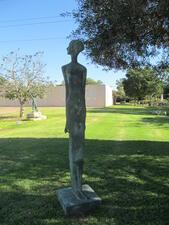
Wife of Lot: Bible
Lot, his wife, and his daughters are urged to escape the violence in Sodom that ensues when the local people want to rape two visitors to Lot’s house. Lot and his family are told not to look back when they flee, but Lot’s wife does look back and is turned into a pillar of salt. This gripping narrative contains elements of folklore and provides an explanation for the salt formations along the Dead Sea.
Wife of Manoach; Samson's Mother: Midrash and Aggadah
Wife of On Ben Pelet: Midrash and Aggadah
The wife of On Son of Pelet is not mentioned in the Bible. However, the midrash credits her for saving her husband’s life. Her strong character allowed her to perform an “unbecoming” act to achieve a higher goal: rescuing her home and family.
Wifebeating in Jewish Tradition
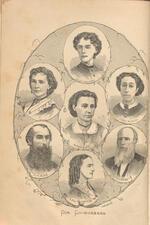
Cora Wilburn
Cora Wilburn was one of the most prolific American Jewish women writers of her time. Much of her work appeared in secular and Spiritualist publications, but during her final decades she published poetry in Jewish publications. Her autobiographical novel, Cosella Wayne, published serially in 1860, is the first coming-of-age novel to depict Jews in the United States.
Hannah Wilke
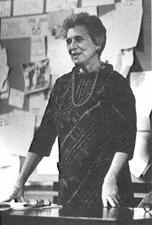
Pearl Willen
Pearl Willen was a twentieth-century social and human welfare activist and communal leader with a love for Jewish heritage. She had a lifelong record of service for such causes as civil rights, women’s rights, and the rights of workers.
Henrietta Scheuer Wimpfheimer

Edie Windsor
Before Edie Windsor became an LGBT activist, she was a computer programmer at IBM in the 1960s and a mentor to women in the field. When her joyous 44-year relationship with Thea Spyer ended with Thea’s death, Edie sued the federal government to recognize their marriage. She took her case all the way to the Supreme Court, winning recognition for the marriages of all same-sex couples in the U.S.


